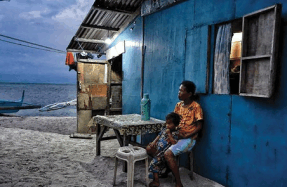

SULTAN ALI JAWADI, the editor of Nasim Radio, made a phone call on the evening of 12 August to inquire about the state of fighting in Daikundi, a province in central Afghanistan. The person he called was already a former government official, who told him that the local government had abandoned the province, as had most journalists. Jawadi and his three-member team had been left behind. They remained in the office and stopped broadcasting.
The following morning, a Taliban official called to ask why the private radio station was off the air. He summoned Jawadi and his team to the local administrative building. “I had reported on the Taliban for years, but I had never seen or met the Taliban before,” Jawadi told me. He changed out of his suit into local clothes. Once his relatives found out about the summons, they began crying. “We were not sure that we would come back alive,” he said.
The Taliban governor ordered Jawadi to return to the office and get Nasim Radio broadcasting again, since, he said, “we need you.” The station was trusted as a news source in the province, and the Taliban wanted it to spread the message of the amnesty they had announced as well as of their attempts at governing the province. “It was the most difficult news story that I wrote,” Jawadi said, adding that it took him an entire afternoon to prepare the bulletin. “I was afraid. I was weeping while writing the news. We had lost all of our journalism and our freedom of speech.”
For two decades, the media flourished under the US-backed Afghan government. The era saw a rapid increase in the number of media outlets. Political parties, religious groups and liberals launched their own platforms.
Nasim Radio was already






